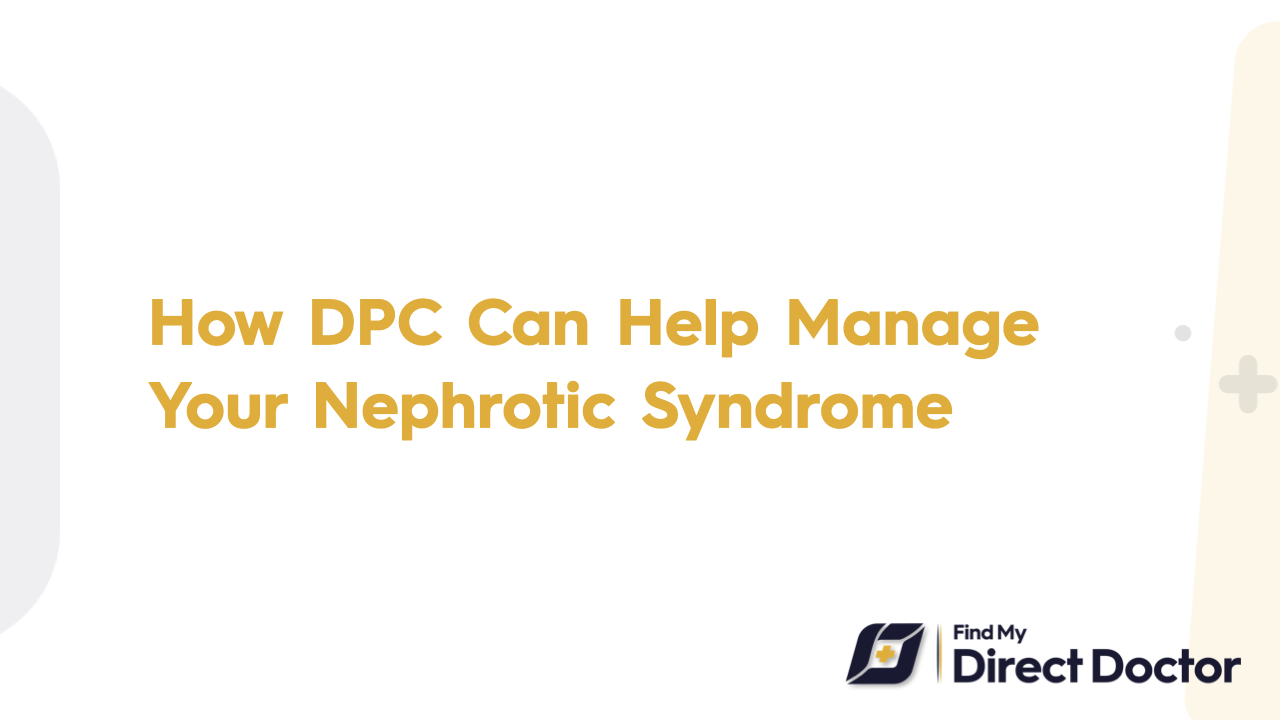



The kidney disease known as nephrotic syndrome is typified by excessive protein loss in the urine, which lowers blood protein levels and causes edema in different body areas. Fatigue, weight increase from fluid retention, edema in the legs, ankles, and around the eyes, and frothy urine are typical symptoms. High blood pressure and cholesterol can also occur in extreme situations. Damage to the glomeruli, the kidneys' microscopic filtering units, is frequently the origin of this illness. This damage can be brought on by a number of underlying illnesses, including lupus, diabetes, and glomerulonephritis.

Direct Primary Care (DPC) provides individualized, continuous care, which is a novel way to control nephrotic syndrome. Patients can ensure that their condition is closely monitored by having more regular and in-depth discussions with their healthcare practitioner through DPC. Frequent visits enable therapy modifications, including medication administration or dietary tweaks, to successfully manage symptoms and avoid problems. In order to address any underlying causes of nephrotic syndrome and provide a thorough and integrated approach to treatment, DPC doctors can also coordinate care with specialists.
Compared to conventional healthcare approaches, DPC provides a number of benefits for individuals with nephrotic syndrome. Accessibility and continuity of care are the main advantages. More time is available for patients to talk about issues, monitor their progress, and modify their treatment plan with their healthcare professional. Because routine examinations aid in spotting early indicators of issues like infections or kidney damage, DPC places a greater emphasis on management and prevention. Furthermore, DPC's individualized approach fosters a better comprehension of each patient's particular medical requirements, enabling more efficient condition management.
Nephrotic syndrome is managed in DPC in a way that is highly tailored to the needs of each patient. Providers of DPC can give individualized treatment programs that address the condition's unique causes and symptoms, such as regulating blood pressure, minimizing edema, and managing protein loss. Treatment can be modified as necessary to maximize results with more regular visits and careful observation. Strong patient-provider relationships within DPC guarantee that every facet of the patient's health is taken care of, which improves the effectiveness and patient-centeredness of nephrotic syndrome management.
Next Post